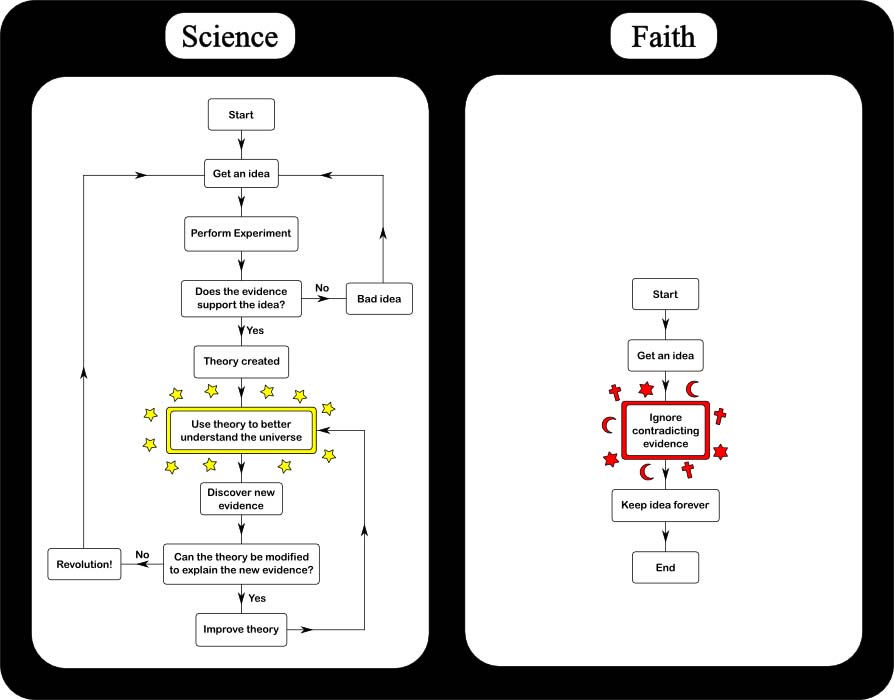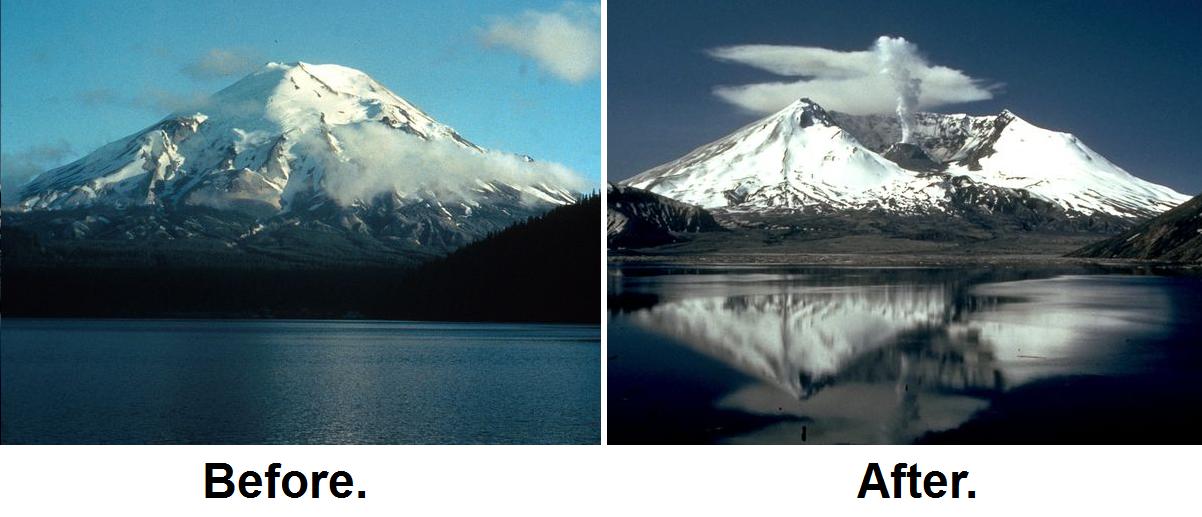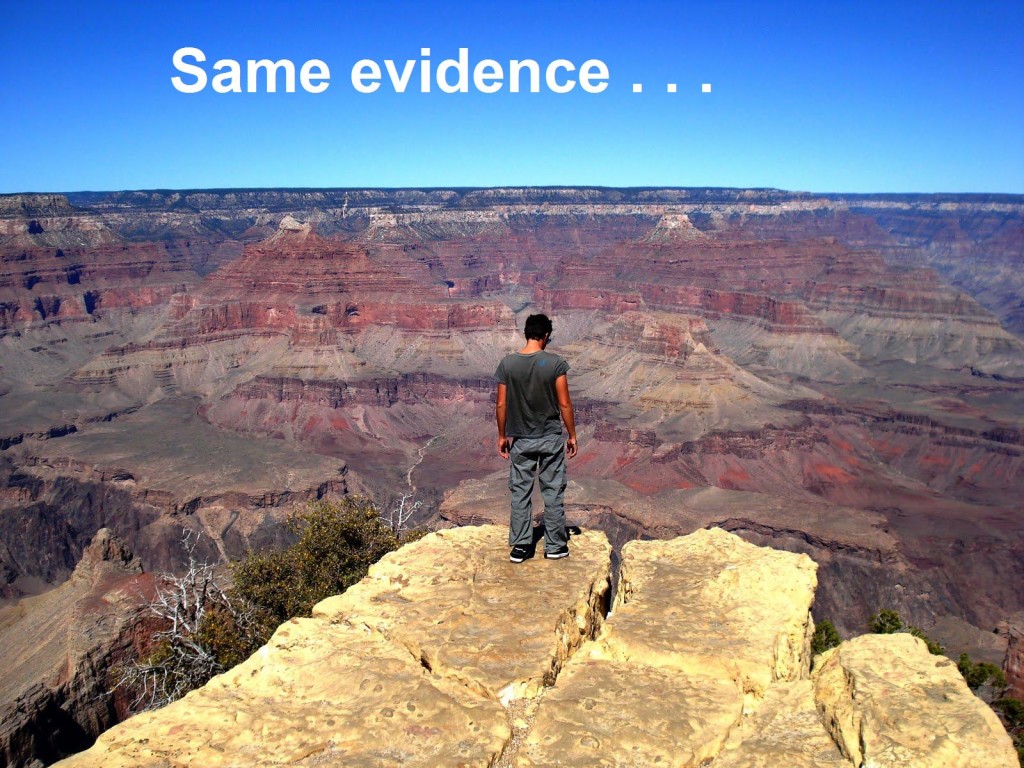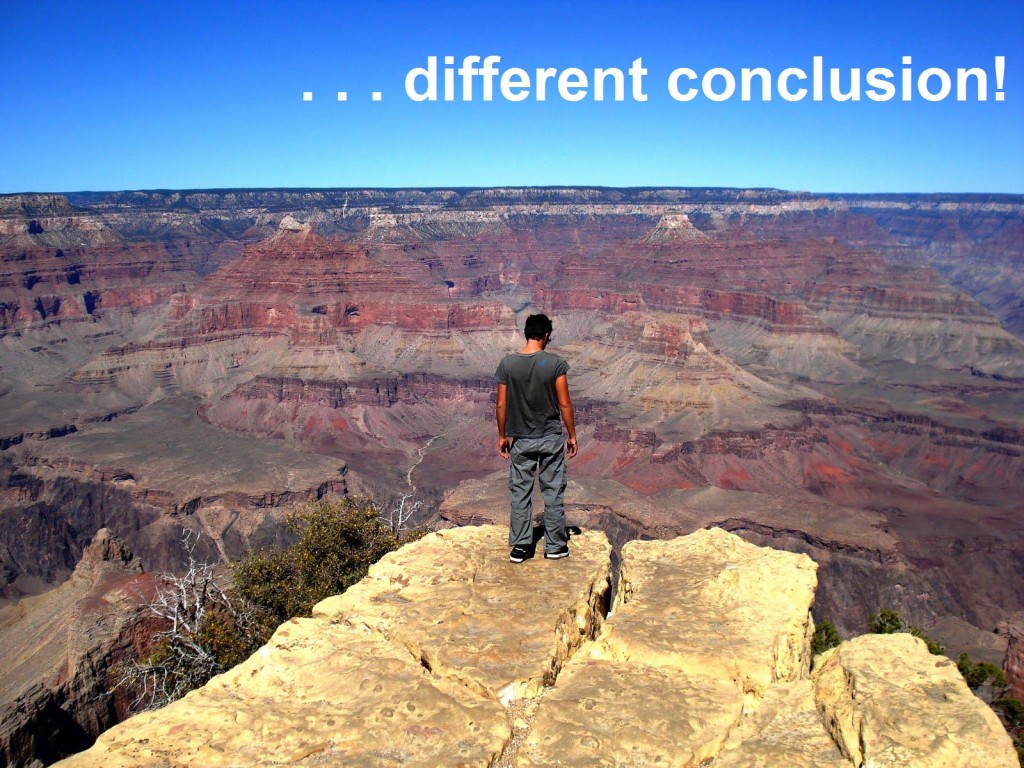
As we see illustrated above, those who have rejected faith commonly allege that those who have not are irrational. But with millions of Christian scientists, physicists, mathematicians and engineers successfully working in their fields, a truly scientific thinker must ask: is this implied accusation rational? Is human reasoning the final authority in all things?
Without a doubt, one of the most hope-crushing, lethal false premises to be perpetrated upon our culture today is the idea that the rational man or woman is required to set aside anything that cannot be scientifically “proven” to be true. Let’s make sure we understand the term “science” with a key definition:
“Scientific Method.” A process by which 1) a question is formulated concerning something we observe in nature, 2) a guess (or “hypothesis”) which – if proven accurate – would provide an answer to this question, 3) a prediction of consequences that would be observed if the hypothesis were true, 4) an experiment to investigate if the real world behaves in accordance with this prediction, and 5) analysis of the experiment’s results to make a final determination whether results increase or decrease confidence in the hypothesis.
Using the scientific method alone, then, we now charge you plainly:
Scientifically prove that you got out bed this morning.
Think about it for a moment . . . sure, you could have rigged sensors or cameras to collect evidence before you climbed out of bed, then examined/analyzed the results afterwards – thereby increasing or decreasing your confidence in your hypothesis that you did, in fact, get out of bed. But this is not the task we’ve given you: we’re asking for hard scientific proof of a very specific event in your life after-the-fact.
OK . . . enough of that. Since it is not the purpose of this website to lure you into wasting hundreds of hours on a futile task, allow us to save you some time: it cannot be done – for multiple reasons. First, most scientists concede (albeit reluctantly, for some) there is no such thing as a “scientific proof.” Second, you cannot design a valid after-the-fact scientific experiment that would increase or decrease your confidence in your hypothesis that this event took place.
Such is the “heads-I-win, tails-you-lose” straw-man argument presented against Christianity today. The fact of the matter is that we accept many things as true based upon historical – not scientific – evidence. Witnesses are produced, artifacts recovered and circumstantial evidences examined. It happens every day in our universities and courtrooms, and few seem to have any objections to it – until the topic of Christianity is brought up. When it does, too-often we see an impossible-to-pass scientific-proof-test erected against it. When it logically fails to pass this contrived test, it is dismissed as foolishness by the self-proclaimed scientific oracles of our time. Perhaps this is why God, in His Word, admonishes us to be wary of such jaded thinking:
“O Timothy, keep that which is committed to thy trust, avoiding profane and vain babblings, and oppositions of science falsely so called:” (1Ti 6:20, emphasis added)
If the Word of God is what it claims to be – infallible truth, established by an infallible, omniscient and omnipotent God — then it is self-validating. In this world-view, it becomes the standard against which all evidence must be measured. Let’s consider an example – the Grand Canyon:
Most are at least familiar with the Bible account of how God destroyed almost all life on Earth with a global flood, about 4,400 years ago. But for Noah and the faith it took to build the ark, the Christian believes that none of us would be here today.
While the available evidence is the same for everyone, and most seem to make similar observations about the evidence, conclusions about what the evidence means are often wildly different. The different conclusions are a direct result of radically different world-views: in a godless universe, the observer must look to only natural causes for everything he sees. “Uniformitarianism” – the belief that “the present is the key to the past” – is a central component of this world-view.
The biblical Christian – having already-accepted the biblical account of a 6000 year-old Earth and a global flood – examines the same Grand Canyon and draws his conclusions from the same evidence accordingly. And – contrary to what is indicated in the whimsical chart at the top of the page – he need not “ignore contradicting evidence” to draw scientifically, historically and biblically consistent conclusions from this empirical evidence. In this case, the Christian defers to an explanation of the Grand Canyon that is based on the scientifically-robust tenants of “catastrophism” – large-scale changes in what we observe based on short-term, cataclysmic events. Examples of catastrophism are all around us. For example, the scale and magnitude of the geographical changes that occurred in the vicinity of Mt. St Helens immediately after its 1980 eruption could take millions of years — following the normal pace of sediment accumulation and erosion — but we all know that isn’t what happened.

Mt. St. Helens immediately before and after the 1980 eruption. Three eruptions within two years (May 18th, 1980; June 12th, 1980 and March 19, 1982) laid down three thick layers of sediment. Based upon the number of strata within these layers, uniformitarians would conclude that it took thousands of years for them to form. But we know it only took two years — not thousands — because we watched it happen!
History seems to indicate that people are often threatened by conclusions which differ significantly from their own. Nothing seems to bring out the worst in humanity like fear — and since neither side can scientifically “prove” anything, the debates can get rather heated. With no intent to resolve any of those debates here, (we will address some of them elsewhere in the website) let us conclude by simply saying this:
If the Bible is true, then there is no conflict between valid science and sound theology: both involve the study of the same, vast mind of God. The first field of study generally examines His natural laws; the second His moral laws. In fact, if the Bible is true, sound science is problematic without first coming to a point of saving faith in God, and therefore, His Word:
“The fear of the LORD is the beginning of wisdom: and the knowledge of the holy is understanding.” (Pr. 9:10)
We submit that sound science requires both “wisdom” and “understanding.” The debate at hand is . . . where does wisdom and understanding come from? Those who believe that human beings are the final authority in ascertaining truth – a world view known as “humanism” – would have you look to them, to scientists or to yourself for this wisdom. And there is little debating that humanists have taken center stage in our public education system, mass media, government – and even many of our churches. We are bombarded by their message on a daily basis.
But if the Word of God is true, humanists are dead wrong. It’s our conviction that you have already heard enough of ‘their side of the story.’ Let’s examine God’s side of the story, and His message for you, in His Word, here.


